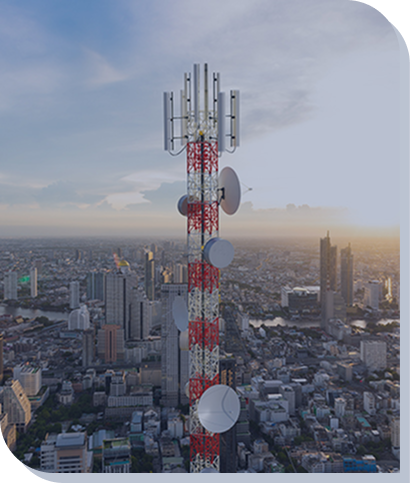Shield: Secure Allegation Escrow System with Stronger Guarantees
- CDPG
- 0 Comments
April 2023
Authors: Koti, N., Kukkala, V. B., Patra, A., & Gopal, B. R
The rising issues of harassment, exploitation, corruption, and other forms of abuse have led victims to seek comfort by acting in unison against common perpetrators (e.g., #MeToo movement). One way to curb these issues is to install allegation escrow systems that allow victims to report such incidents. The escrows are responsible for identifying victims of a common perpetrator and taking the necessary action to bring justice to them. However, users hesitate to participate in these systems due to the fear of such sensitive reports being leaked to perpetrators, who may further misuse them. Thus, to increase trust in the system, cryptographic solutions are being designed to realize secure allegation escrow (SAE) systems. In the work of Arun et al. (NDSS’20), which presents the state-of-the-art solution, we identify attacks that can leak sensitive information and compromise victim privacy. We also report issues present in prior works that were left unidentified. To arrest all these breaches, we put forth an SAE system that prevents the identified attacks and retains the salient features from all prior works. The cryptographic technique of secure multi-party computation (MPC) serves as the primary underlying tool in designing our system. At the heart of our system lies a new duplicity check protocol and an improved matching protocol. We also provide additional features such as allegation modification and deletion, which were absent in the state of the art. To demonstrate feasibility, we benchmark the proposed system with state-of-the-art MPC protocols and report the cost of processing an allegation. Different settings that affect system performance are analyzed, and the reported values showcase the practicality of our solution.
Journal/Conference
Proceedings of the ACM Web Conference 2023.

User-Level Differentially Private Mean Estimation for Real-World Datasets Authors: V. A. Ramesh ..

December 2024 Integrating Crypto-Based Payment Systems for Data Marketplaces: Enhancing Efficie ..

Privacy-Preserving Data Quality Assessment for Time-Series IoT Sensors Authors: N. Chakraborty, ..

The TelanganaData Exchange (TGDeX) is a pioneering initiative for the Government of Telangana, designed to foster responsible and innovative development of Artificial Intelligence (AI) solutions. This data exchange provides a controlled environment where startups and developers can test and refine their AI applications in real-world scenarios, particularly within the public sector.
By facilitating experimentation in sectors such as healthcare, education, agriculture, and governance, TGDeX to accelerate the deployment of AI technologies that address critical societal challenges. This approach not only promotes innovation but also ensures that AI solutions are developed with a focus on ethical considerations, data privacy, and regulatory compliance. Through this initiative, Telangana is positioning itself as a leader in AI adoption, encouraging collaboration between the government, industry, and academia to drive technological advancements for public good.


The CBR Analytics Project is a collaborative initiative between the Centre for Brain Research (CBR) and CDPG, aimed at unlocking the full analytical potential of CBR’s extensive structured and unstructured datasets. CDPG is leading the development of a Data Lakehouse architecture that will catalogue and unify diverse data sources, making them accessible for a wide range of advanced analytics and AI/ML applications.
Building on CBR’s robust on-premise infrastructure – including high-performance compute, GPU resources, and high-bandwidth networking – CDPG is also designing an MLOps framework to enable scalable deep learning and statistical workflows. One of the flagship use cases includes the vectorisation of MRI images to enable intelligent search and retrieval through vector databases.


The ADARV (Advanced Data Analytics for Public Health Action and Research Visualisation) project is a joint initiative of ICMR-NIE (Indian Council of Medical Research – National Institute of Epidemiology) and CDPG, aimed at transforming how public health data is leveraged for research, surveillance, and policy-making in India. ADARV seeks to build a secure, interoperable data platform that enables seamless sharing, advanced analytics, and visualisation across diverse datasets from outbreak investigations, surveillance programmes, and partner institutions.
CDPG is playing a foundational role in this collaboration by contributing its expertise in data architecture, analytics-ready data systems, and AI/ML frameworks, thereby enabling the platform to support real-time epidemiological insights and evidence-based decision-making. A key early outcome of this collaboration is the digital health project titled ‘ICMR EpiHub: A platform for Epidemic Intelligence in Infectious Disease Epidemiology’ with Dr Rizwan S.A. as the Principal Investigator.


Integrated Proactive e-Governance (IPeG) is a transformative digital public infrastructure that enables secure, consent-based sharing of data across government departments to improve public service delivery. By integrating systems like Aadhaar and the Public Distribution System, it supports the creation of centralised social registries for accurate beneficiary identification and efficient implementation of schemes like Direct Benefit Transfer (DBT).
Deployed across multiple sectors – including urban governance, agriculture, and geospatial data – the open-source platform promotes transparency, reduces costs, and empowers both citizens and government agencies with real-time, data-driven insights. Proven at scale in states like Chhattisgarh, the Data eXchange framework fosters innovation, enhances service accessibility, and strengthens the social safety net for all.


The IOS-MCN (Indian Open Source for Mobile Communication Networks) will accelerate the development and deployment of Mobile Communication (5G/6G) products and services by the vendors.
It is a collaboration between academia, government, and the Indian Telecom Ecosystem (vendors, service providers, companies, and startups) to leverage the global open-source ecosystem and establish a common forum for open source technology projects and solutions from India, by India.
The IOS-MCN Consortium provides a neutral, democratic, and trusted platform for the translation of 5G/6G innovation and research into commercially deployable Open Source software.


The Digital Addressing Project is a flagship initiative by the Department of Posts, Government of India, aimed at creating a standardised, geo-coded addressing system across the country. At its core is DIGIPIN, a unique 10-character alphanumeric code based on latitude and longitude.
By assigning each address a precise digital identifier, the Digital Address Code enhances delivery services, governance, emergency response, and e-commerce logistics – especially in areas lacking structured addresses. CDPG is designing a secure and scalable technology architecture for this Digital Public Infrastructure, paving the way for seamless integration of ‘Address as a Service’ (AaaS) across platforms.


The India Urban Data Exchange (IUDX) is a pioneering initiative developed by CDPG for the Smart Cities Mission of the Ministry of Housing and Urban Affairs (MoHUA), Government of India. IUDX is designed as a Digital Public Infrastructure (DPI) to facilitate secure and authenticated exchange of data amongst urban stakeholders, including city administrations, public agencies, start-ups, researchers, and solution providers. The platform provides full control to data owners regarding what data to expose and to whom.
Built-in accounting mechanisms enable it to connect with payment gateways – forming the foundation for a data marketplace. The whole platform is developer-friendly, via definitions of open APIs and data schema templates, so that a new application ecosystem can be created. It has already been adopted by 55+ Smart Cities in the country for integrating and sharing urban data.


The Integrated Geospatial Data-sharing Interface (GDI) is a standardised platform within the geospatial sector that integrates diverse sources of spatial data, tools, and services into a cohesive and accessible interface. Developed by CDPG for the Survey of India and the Department of Science and Technology (DST), Government of India, it aims to streamline access to geospatial information, promote interoperability across different systems, and facilitate seamless data sharing and analysis.
By providing a unified access point, GDI enhances efficiency in geospatial data usage, supports innovation in applications and services, and ensures consistency in data standards and protocols for users across various domains and industries.


CDPG is proud to be a key partner in the AIRAWAT Research Foundation — a national Centre of Excellence for AI in Sustainable Cities under the Government of India’s “Make AI in India, Make AI Work for India” initiative. CDPG leads critical work on developing interoperable data infrastructures and advanced AI/ML systems that support evidence-based decision-making for urban governance.
Our role focuses on enabling responsible and scalable data ecosystems, building AI tools for improving public service delivery, and embedding ethical and accountable AI practices into city-level operations. With deep expertise at the confluence of data, public interest, and technology, CDPG is committed to shaping impactful solutions that address the complex challenges of India’s urban future.


The Agriculture Data Exchange (ADeX) is India’s first-of-its-kind data exchange platform for the agriculture sector. It is a collaborative venture of the Government of Telangana, the Indian Institute of Science (IISc), Bengaluru, and the World Economic Forum’s Centre for the Fourth Industrial Revolution India to create India’s first data exchange platform for farmer services.
ADeX enables secure, standardised, and consent-based sharing of agricultural data between diverse stakeholders – from farmers and agri-tech companies to government agencies, financial institutions, and researchers. It is an open-source, open-standard and interoperable public good, democratising access to data and enabling the public and private sectors to build applications and deliver services for societal benefit.


Lead Architect, Smart City Living Lab, IIITH

Chief Program Officer, National Urban Digital Mission

Deputy Director & Chief of Operations, CPDTRI Laboratory Director, ADRC PI, Molecular Immunology, Mazumdar Shaw Medical Foundation (MSMF) Director, Beyond Antibody LLP
Till the late 20th century healthcare has been the forte of biology evading the clutches of mathematics. The new millennium digitised life and sciences therein leading to data-explosion. How digitization and data is propelling healthcare for public good will be discussed with specific examples from the world of diagnostics and therapeutics.

TBD

Director, ICMR-NCDIR

Senior Director, MeitY

Professor, Indian Institute of Science, Co-founder ReneLife, Research Consultant
The Digital Personal Data Protection (DPDP) Act 2023 creates a legal framework for the secured use of personal digital data to eliminate abuse. However, the Act’s provisions appear to have been drafted primarily with the e-commerce websites, personal data-based applications, and other digital customers in mind, not the healthcare community. Healthcare in the digital era requires communicating sensitive patient information over the web with clinicians for responsive advice and consultation. The consequences of such data-sharing involving medical personnel are not clear. Besides, the growth of digital health technologies requires patient data to be accessible anonymously and in de-identified form. Elimination of personal information alone does not guarantee de-identification. Also, to what specific detail one must describe the intended use of data for research and technology development is not articulated. Thus, the gray areas in the Act pose a challenge for the Indian medical ecosystem, which could incur penalties under the DPDP Act 2023.

Chairperson, Arghyam
This topic covers the development of a data-centric public health technology system, with insights from the NCD Portal for the National Non-communicable diseases program. The NCD Portal is used in 31 states and has more than 45 million people on treatment for hypertension and diabetes.
It explores the role of data in four key phases of the technology system: design, platform development, operations, and field adoption. In the design phase, data-driven insights, such as search patterns of frontline workers and medical officers optimize the user interface for speed and efficiency.
Platform development focuses on secure management and rule-based access control of data coming through APIs and data streams, transformed and cleaned, and going to the data warehouse for reporting needs.
Daily operations leverage Application Performance Monitoring (APM) tools and telemetry to identify and resolve performance issues proactively. Field adoption is enhanced through data analytics, guiding weekly reports for program review and feedback loops to prioritize feature development.
Embedding data-centricity throughout the system lifecycle supports large-scale, efficient and secure public health service delivery.

Director, Govt of Telangana, Emerging Technologies, Tech for Social Good

Chair & Professor, Isaac Centre for Public Health, IISc

Head, Product Partnerships, Google

National Program Director, Ease of Doing Business, Project Director, NHEV, President, CPOs of India, & Ex-CAG Member

Scientist G, Centre for Development of Telematics

Chairperson, Centre for Society and Policy, IISc

CEO, DeepMatrix
In this talk, titled “Geospatial Data Democracy: A Technical Perspective,” we will explore how advancements in technology can enable broader access to geospatial data for public good. From open data platforms to cutting-edge tools that lower barriers for non-experts, this session will dive into the technical innovations that have potential to democratizing geospatial information. We will also address the challenges of data privacy, standardization, and infrastructure, and discuss how these obstacles can be overcome. By giving some real-world case studies and future directions, this talk will provide a comprehensive technical outlook on how geospatial data can empower communities, enhance public services, and foster transparent governance.

President, Geospatial Business at MapmyIndia
We see a growing need for geospatial data & solutions for situational awareness, informed decision-making and smart governance. The geo continuum of Capture, Create, Model, Visualize, Analyze and Share involve diverse frameworks and workflows driving variety of applications for Public good. Liberalization of Geospatial sector coupled with a series of Impactful Initiatives triggered the growth & adoption of geospatial data accelerating the country’s digital transformation journey.

Surveyor General of India, Govt of India

IAS, Special Chief Secretary, Department of ITE&C & Department of Industries & Commerce, Govt of Telangana

CTO, Elena Geo Systems Pvt Ltd

Head of Engineering, Modular Open Source Identity Platform (MOSIP)
The quad of Awareness, Law, Policy, and Technology. In securing and safeguarding privacy on a grand scale, we encounter an interplay of four pivotal elements: Awareness, Law, Policy, and Technology. This quadrivium represents not merely a technical or administrative framework but a philosophical foundation that shapes our approach to managing and protecting information in an increasingly complex digital world.

Co-Founder, iSPIRT Foundation

Scientist/Engineer “G” and Group Director, Geosciences Group, National Remote Sensing Centre, ISRO
This session will cover two important aspects of using data for urban good:
We will discuss various ML techniques that can be used to benefit people in the urban context. For these techniques we then describe the state of the art data processing architectures for an end-to-end MLOps pipeline that can accommodate a diverse variety of data use cases. By way of illustration, we explore three interesting application domains, namely, Air Quality, Solid Waste Management and Geospatial Satellite Image processing.
The workshop on Healthcare Knowledge Graphs and Analytics will explore how data modelling for healthcare, and NLP techniques can revolutionise healthcare by standardising data and analytics paving the way to building comprehensive knowledge graphs with ability for semantic reasoning and machine interpretable data and machine automatable algorithms. Participants will gain insights into the development and application of knowledge graphs in healthcare settings, focusing on real-world case studies and cutting-edge research.

Vice-Chair of the ACM India Special Interest Group on Computer Science Education

Associate Professor, Indian Institute of Technology, Madras

General Manager, Siemens Healthineers

Competency Head-Data, Analytics & Intelligence, Wipro

Professor, Dept. Comp. & Data Sciences, IISc, Bangalore. Founder & CAiO, Zenteiq AiTech Innovations Private Limited.

In this session, leading experts from academia and industry will present the latest research and applications of AI and data technologies for public good. The talks will showcase cutting-edge problems, innovative solutions, and ongoing advancements in areas such as healthcare, urban management, and societal well-being. The session aims to provide the audience with insights into emerging trends.
This session will explore the role of public health data in driving actionable insights for policy and healthcare interventions. It will highlight the anticipated progress in collecting, analyzing, and utilizing data to address critical health issues, from disease surveillance to resource allocation. The discussion will also focus on the upcoming challenges related to data accessibility, quality, and privacy in public health systems, and strategies that will be developed to overcome these barriers. Attendees will gain insights into the future potential of data-driven public health initiatives.
The panel discussion on “Roadblocks to Achieving Sustainable Mobility” will explore the critical challenges hindering the transition to sustainable transportation systems. Experts from various sectors will examine barriers such as inadequate infrastructure, policy gaps, technological limitations, and societal resistance. The discussion will also focus on innovative solutions and collaborative approaches needed to overcome these obstacles, ensuring a more sustainable and equitable mobility future for all.
This session will delve into the latest trends in sensor technologies and the evolving standards shaping data acquisition. With a focus on smart agriculture, smart cities, and geo-positioning applications, the discussion will highlight how emerging sensor technologies are transforming these sectors. Key challenges surrounding data management, including acquisition, storage, and distribution, will be addressed. Additionally, the session will explore the role of emerging standards in ensuring seamless data integration and interoperability across diverse platforms.
This session explores the transformative impact of data and digital technologies on healthcare, focusing on how data-driven insights are enhancing patient outcomes, optimizing operational efficiencies, and supporting personalized medicine. Experts will discuss the role of AI, machine learning, and big data in diagnosing diseases, managing healthcare delivery, and advancing medical research. Attendees will gain a deeper understanding of how digitization is reshaping healthcare ecosystems and the challenges of integrating data privacy and security in a rapidly evolving digital landscape.

Founder & CEO, Sirpi Products & Services Private Limited

Executive Director, Gimcare Hospital & Chairperson, DHIA

Founder and CEO, Garudalytics
This presentation will focus on the application of GeoAI technologies in agriculture and how available data can be utilised to drive innovation and efficiency in farming practices. Emphasising the capabilities of Garudalytics’ smart mapping and AI solutions, we will explore how these tools enhance agricultural decision-making through advanced spatial analysis and predictive modelling. The discussion will include real-world examples where GeoAI has improved crop monitoring, yield prediction, resource management, and overall yield optimization. We will also address the practical challenges of integrating GeoAI into existing agricultural systems and offer strategies for maximising its benefits. Additionally, the talk will cover how GeoAI can leverage both structured and unstructured datasets to enhance agricultural outcomes, with a focus on Garudalytics’ Agri AI solution for integrating diverse datasets, including in-situ data.

CEO, Wadhwani Institute for Artificial Intelligence
We work in the social space, focusing on Applied AI. The space presents unique challenges and constructs that offer an excellent opportunity to have the best minds work through complex problems. The talk focuses on AI in this sector, using a case study-based approach and abstract principles that we present through our doing. This talk is a substrate of our experience in a “learn by doing” approach that we have found to be meaningful.

Dr Brahm Prakash Professor, NRSC/ISRO

Executive Program Director, Sustainable Cities & Director, WRI India Ross Centers

Engineering Director, CDPG

Principal Scientist & Program Manager, CDPG

Engineering Director, CDPG

Technical Lead, Analytics Systems, CDPG

Director, Solvesustain


Founder & Executive Director, Shelter Associates
“Accurate data is the lifeblood of good policies and decision making”
As nations and organisations strive to solve social problems around the world, the lack of accurate data has often been cited as a primary reason why policies do not translate into effective on-ground solutions. The reality in urban informal settlements is no different. They manifest multidimensional deprivation, characterised by a lack of secure tenure, inaccessibility, and inadequate sanitation and health services which marginalises the slum dwellers. Governments and NGOs also find it extremely difficult to effectively target vulnerable communities due to the lack of reliable data. Data on slum settlements is crucial for the inclusion of these underserved communities in city level development plans.
Realising the dire need for safe and hygienic sanitation facilities and practices, Pratima started leveraging data and technology since the late 90s when she realised that data with the Urban Local Bodies was inconclusive and disjointed with the on-ground reality. This propelled the need for a data system that would provide unfailing results. A year of continuous efforts and iterations resulted in a well-tailored Geographical Information System (GIS). It catered to the needs of slum mapping, and spatial layout formation. It also helped to link the socio-economic surveys taken to individual dwellings/house structures that were mapped on GIS. Our granular spatial data harnesses the power of geo-visualisation for effective planning and monitoring of our Sanitation, Housing and Covid-relief projects.
The communities form the backbone of Shelter Associates’ data-driven approach, as they are involved in conducting survey, creating awareness and making sure the data sets are inclusive. This spatial data is then shared with the respective Urban Local Bodies for validation. Once the process is complete, the data is made public on our website while it is also linked to the ULB’s website making it freely available for all to use.
The co-created data helps immensely in bridging the information gap. SA gives slum-dwellers a voice by arming them with data about their community, empowering them to make decisions making them partners in the developmental process.

Founder & Trustee, Oorvani Foundation
OpenCity.in is a leading urban data platform that democratises city data across India by enhancing transparency, fostering understanding and facilitating civic engagement. Alongside hosting an urban open data repository, we work to build a strong open data community.
OpenCity collaborative events or “jams” enable citizens to participate in finding solutions to urban issues; they serve as an effective tool for public problem solving. These events bring together participants from diverse and multidisciplinary backgrounds to open up data, analyse it, and derive actionable insights. From water management to urban mobility, our crowdsourcing projects, datajams, hackathons, and solution jams, have become instrumental in breaking down data silos, revealing patterns, and constructing “what-if” scenarios to propose innovative solutions to pressing public issues.
Through these initiatives, OpenCity provides opportunities for the public to engage with urban issues, which can lead to actionable insights and potential solutions. Our approach brings the power of collective intelligence to drive civic action for better cities.

Research Professor, CiSTUP, IISc

Director, Centre for Brain Research, IISc, Bangalore
The talk will present details of two longitudinal cohort studies in the context of ageing brain research. One study is in the urban area and the other in a rural area. The challenges of sustaining a large cohort of several thousand participants over several years along with the handling of large data that is generated from such studies will be presented.
The workshop on Harnessing the Power of Remote Sensing Data will delve into the transformative potential of remote sensing technologies in various sectors, including environmental monitoring, urban planning, and disaster management. Participants will explore techniques for data acquisition, processing, and analysis, gaining hands-on experience with tools that enable precise, large-scale observations of the Earth’s surface. This session will provide valuable insights into how remote sensing data can be effectively utilised to drive informed decision-making and innovation.
This workshop will introduce participants to a pivotal geospatial data exchange platform that supports the National Geospatial Policy (NGP 2022). Attendees will explore the platform’s capabilities, including data exploration, user-consumer interactions, and analytics. This hands-on session is essential for anyone involved in geospatial data, offering practical insights into how to build innovative applications using the geospatial data exchange.
The workshop on Demos on Secure Data Handling Using Privacy Enhancing Technologies will showcase practical demonstrations of cutting-edge privacy-enhancing technologies, including Differential Privacy, Trusted Execution Environments (TEEs) and Secure Multiparty Computation (SMPC). Participants will gain practical insights into how these technologies can be integrated into industry solutions and government systems, enabling secure collaboration and innovation while adhering to regulatory requirements. This session is ideal for those looking to explore new applications in the area of secure computing and privacy-preserving data analysis.
The Young Researchers’ Forum on Data and AI for Public Good will feature engaging poster sessions from early-career researchers, including Postdocs, PhD students, and Master’s by Research candidates. This symposium provides a platform for emerging scholars to showcase their innovative research on leveraging data and AI to address public good challenges, fostering discussions and networking opportunities with peers and experts in the field.
The IUDX Dashboards and Sandboxes workshop will highlight the transformative potential of the India Urban Data Exchange platform, deployed in over 50 cities across India. This session will demonstrate how IUDX can be leveraged to create data-driven dashboards for city governance, focusing on impactful use cases in traffic management, solid waste management, and green corridor management, integrating data analytics and geospatial technologies.
The Education and Training for Responsible AI will have leading educators and practitioners from industry and academia to examine how teaching and training occurs in this fast moving space, and how flexible, life-long learning is inculcated in alignment with the National Education Policy (NEP). This will cover both degree-based training universities, certifications through edtech companies, and internal training imparted by the learning teams within companies. The unique needs of training on data and AI for public good will be explored.

Road Safety Ambassador, International Road Federation Advisor, Project India Road Safety 2.0, WEF

Director, Engineering & Growth, Namma Yatri

Executive Officer, Head Powertrain & xEV Engineering Maruti Suzuki India Limited

Sr. Operations Officer, World Bank Health Systems

Founder & Director, Data For India

CEO, Health System Transformation Platform

Deputy Surveyor General, NIGST, SOI, Hyderabad

Associate Professor, IISc
Digital interfaces and communications have become critical for access to information, entertainment, economic opportunities and even essential services such as healthcare. Speech is the most natural form of communication, and most Indians are not digital natives comfortable with typing or English. We need spoken language interfaces that work for all variations and dialects. But such data barely exists. IISc-ARTPARK’s umbrella of open-source speech data initiatives are capturing the true diversity of India’s spoken languages to propel language AI technologies and content for an inclusive digital India, in collaboration with Bhashini, MEITY.

TBD
TBD

CEO, ARTPARK, IISc
High-quality data is the key to realizing the promise of AI in healthcare. ICMR (Indian Council of Medical Research), IISc and ARTPARK are building MIDAS India, a national system for gold standard datasets to enable research, validation and deployment of AI-based solutions. It is a DPI (digital public infrastructure)-enabled, thematic hubs-and-spokes system through which purpose-appropriate datasets that reflect the diversity of India’s population, settings and needs can be collected, curated and made available. The effort has been kicked off in collaboration with AIIMS New Delhi and several other institutions across the country, starting with Oral Cancer screening.
The invited talks session on Geospatial Data Applications: Perspectives from Practitioners will offer insights from industry experts on the practical applications of geospatial data in various sectors. Attendees will gain a deeper understanding of how geospatial technologies are being leveraged for real-world problem-solving, from urban planning to environmental management. In addition, the practitioners will speak on the challenges they speak and how a geospatial data exchange can help in accessing the data and shorten the product development cycle.
It is well established that if properly harnessed, data has the power to transform societies. However, in practice, the pathway to achieving societal impact is not so straightforward. This session focuses on the challenges that are typically faced in the journey of utilising data to realise positive change. There will be talks by experts who have a long experience in this field, and they will describe some of the best practices and the lessons learned.
Data collection is the first step and is also one of the hardest challenges in realising the potential of data for public good. Often, the required data is not easily available, it is incomplete or erroneous, the formats are not standardised, and the sources are disparate. In many cases, some special tools need to be developed for the purpose of data collection, especially in situations where connectivity is poor. In addition, issues related to data privacy, security, and governance need to be addressed before the data can be shared for building useful applications. This session will focus on some recent large data collection efforts and address some of the privacy governance issues.

General Manager, Strategic Accounts, Invas Technologies (P) Ltd.
SMARTKHETI is a One M2M based integrated platform designed to revolutionise modern farming by providing farmers with comprehensive tools for automation, real-time visibility, and market access. This proposal outlines a cutting-edge system that combines Internet of Things (IoT) technology with web-based applications to offer farmers advanced capabilities, including farm automation, real-time crop monitoring, weather updates, government alerts, market pricing, and equipment rental services. Smart Kheti is certified by ICAR, Delhi

CTO, Genesys International Corporation Ltd
The advent of 3D urban spatial Digital Twins marks a significant milestone in the management of modern cities. This presentation will delve into the transformative potential of these technologies, particularly in the context of India’s National Geospatial Policy 2022. By exploring how Genesys’ content program is spearheading the creation of detailed, city-centric datasets, the talk will highlight the practical applications of these Digital Twins. These datasets not only enhance urban planning and infrastructure management but also foster a new paradigm in how cities are monitored, maintained and developed. Attendees will gain insights into the critical role geospatial data plays in shaping smarter, more resilient urban environments for the future.

CTO, CDPG
As organisations increasingly rely on data-driven insights to fuel innovation, collaboration and decision-making, the need to process sensitive data, such as data containing PII, confidential business information etc., securely has become more critical than ever. Further, the organisations are increasingly tasked with balancing the utility of data with the need to protect individual privacy. Traditional methods of data protection and data anonymization often fall short, especially when computations are performed on datasets containing sensitive information. Privacy Enhancing Technologies (PETs) offer a transformative technological approach, enabling secure computation and further, enabling balancing privacy and utility while working with the underlying data.
This talk will explore the integration of PETs into computational processes involving sensitive and private data, and securing data in its different states: at rest, in transit, in-use and post-use. We will discuss the role of foundational PETs such as Confidential computation with hardware based Secure Enclaves, secure multi-party computation, homomorphic encryption, and federated learning, examining how these technologies protect data across its lifecycle, ensuring that sensitive information remains secure whether it is stored, transmitted, actively processed or released after undergoing some aggregation transformation. We will also discuss implementation, performance and deployment issues concerning PETs. We will present different use cases where secure computation is paramount and PETs become a key enabler. Overall the talk will provide a good overview on how PETs can be effectively incorporated into computational workflows to enhance data privacy across all stages and provide some actionable insights on leveraging PETs to securely manage and compute sensitive data in your organization.

TBD
TBD
The Hackathon Finale will bring together the brightest minds who have been competing to develop cutting-edge solutions for the urban mobility problem in Bengaluru. During this session, the top teams will present their innovative projects, demonstrating how they’ve created solutions to given problem statements of the hackathon. Judges will evaluate the solutions based on the accuracy of the results, novelty, and feasibility, leading to the announcement of the winning teams. Join us for an inspiring showcase of innovation and a glimpse into the future of tech-driven problem-solving.

Program Director – Ease of Doing Business, Project Director- NHEV, President – CPOS India, Director DIISHA
The panel discussion on “Roadblocks to Achieving Sustainable Mobility” will explore the critical challenges hindering the transition to sustainable transportation systems. Experts from various sectors will examine barriers such as inadequate infrastructure, policy gaps, technological limitations, and societal resistance. The discussion will also focus on innovative solutions and collaborative approaches needed to overcome these obstacles, ensuring a more sustainable and equitable mobility future for all.

